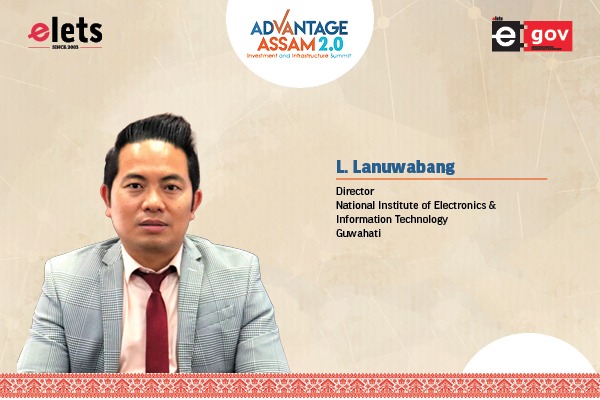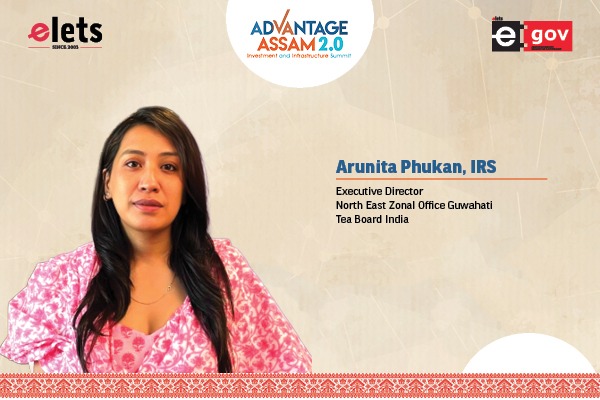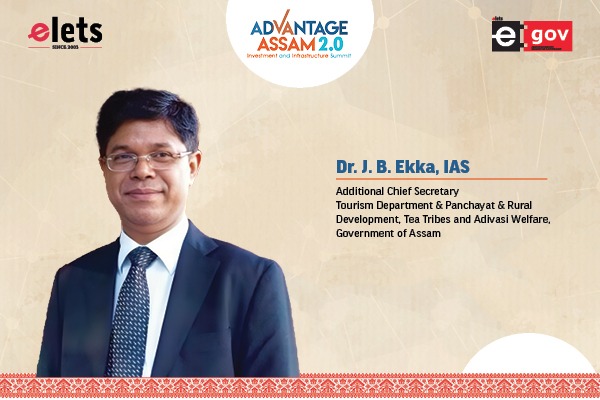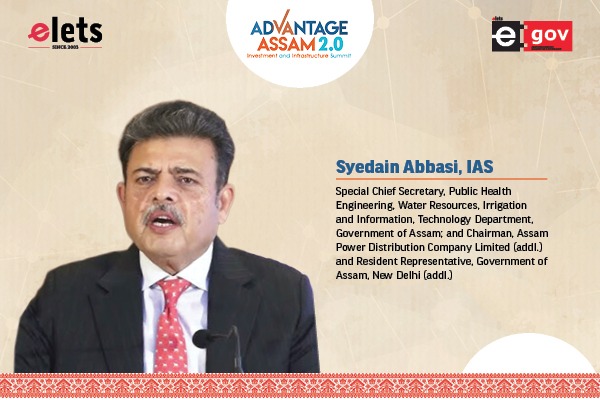
In the intricate web of public healthcare, the availability of essential medicines at the right time and place is not merely a logistical detail – it’s a matter of life and wellbeing. For too long, the drug supply chain in many regions was plagued by inefficiencies, leading to a frustrating reality of stockouts, expired medications, and a palpable lack of transparency. The consequences were far-reaching, eroding public trust and hindering the very purpose of accessible healthcare. It was against this backdrop of challenges that the Government of Rajasthan, in a bold move on October 2nd, 2011, launched the Mukhya Mantri Nishulk Dawa Vitran Yogna – a scheme promising free medicines for all patients across its 33 districts. To realise this ambitious vision, they partnered with the Centre for Development of Advanced Computing (CDAC), Noida, to implement a game-changing solution: e-Aushadhi.
e-Aushadhi, a robust web-based drug supply chain management system, was envisioned as a transformative solution to longstanding systemic inefficiencies in public drug distribution. Before its implementation, the healthcare ecosystem grappled with several deep-rooted challenges:

- The Perishable Nature of Neglect: Life-saving drugs often expire unused due to poor inventory planning and delayed decision-making.
- The Perils of an Unmonitored Chain: Lack of real-time monitoring led to inconsistencies in supply, resulting in stockouts at some locations and oversupply at others.
- The Chasm Between Demand and Supply: Without accurate demand forecasting, procurement often failed to align with actual consumption patterns.
- The Drain of Decentralised Spending: Fragmented procurement processes led to inefficiencies, inflated costs, and duplication of efforts across departments.
- The Compromise of Quality: Inadequate traceability and quality control mechanisms increased the risk of substandard or counterfeit drugs entering the system.
- The Bottleneck of Shortages and Surpluses: Absence of a unified platform meant no visibility into stock levels across facilities, causing critical shortages in some areas and surpluses in others.
- The Shadow of Discretion: Manual systems left room for discretion, delays, and non-transparent practices in drug allocation and distribution.
- The Limitation of Centralised Data: Though data was collected at a central level, it remained largely aggregated, making it difficult to derive actionable insights or execute timely interventions at the ground level.
e-Aushadhi emerged as the antidote to these challenges, offering a holistic solution to manage the entire lifecycle of drugs, sutures, and surgical items. From the central hub at the Rajasthan State Medical Corporation (RMSC) in Jaipur, responsible for overall drug supply management, down to the 5000+ locations including district drug warehouses, medical colleges, hospitals, Community Health Centers (CHCs), Primary Health Centers (PHCs), and ultimately the Drug Distribution Centers (DDCs) serving patients, e-Aushadhi brought a new era of efficiency and accountability. Even the DDCs, the final point of contact with patients, were computerised as part of this transformative implementation.

Developed by CDAC, Noida, e-Aushadhi is more than just a software; it’s a comprehensive online ecosystem providing detailed information from the moment a drug is procured to its consumption at each dispensing counter. The application boasts a suite of modules designed to streamline daily operations and empower higher management with critical insights. These modules include:

- User Management: Ensuring secure and role-based access to the system.
- Demand Module: Facilitating accurate and timely demand generation.
- Order Management: Streamlining the purchase order creation and tracking process.
- Receipt/Issue: Managing the inflow and outflow of drugs at various levels.
- Return/Condemnation: Handling the return of unusable or expired drugs efficiently.
- Transfer Management: Enabling seamless transfer of drugs between health institutions to address shortages and surpluses.
- Quality Module: Integrating quality control processes and monitoring.
- Financial Management: Managing financial aspects related to drug procurement and distribution.
- Alert Management: Providing timely notifications on stock levels, expiry dates, and other critical parameters.
- State Dashboard: Offering a comprehensive overview of the drug supply chain performance at the state level.
e-Aushadhi is designed to seamlessly integrate with key systems and technologies to enhance drug supply chain efficiency. It connects with suppliers and quality labs, offers SMS alerts, and provides mobile app access. Integration with DVDMS supports Union Territories, while the UDAAN Scheme enables sanitary napkin distribution at Anganwadi and school levels through IHMS and ShalaDarpan. Public transparency is ensured via the JanSuchna Portal. It also tracks and ranks performance at both the health institution and district levels, enabling data-driven insights and accountability. These integrations make e-Aushadhi a robust, transparent, and scalable solution for healthcare logistics and distribution.

The success of e-Aushadhi in Rajasthan has been so significant that it has been adopted by over 23 other Indian states and has paved the way for national-level projects in critical areas like Tuberculosis and Family Planning, as well as the DVDMS for Union Territories and a Central Dashboard for nationwide monitoring.
The ingenuity of e-Aushadhi lies in its originality of approach and thinking:
- Integrated Functionality: Seamlessly connecting various functional activities within the supply chain, eliminating silos and fostering better coordination.
- Future-Ready Integration: Incorporating provisions for interfacing with emerging technologies, ensuring the system remains adaptable.
- Comprehensive Monitoring Tools: Empowering stakeholders with user-friendly web and mobile applications for real-time tracking and analysis.
- Robust Operational Support: Recognising that successful implementation requires more than just technology, e-Aushadhi includes crucial handholding, data integrity maintenance, and technical support for end-users.
- Customizable ETL Utility: An indigenously developed Extract, Transform, and Load (ETL) utility that is fully customizable to meet specific data integration needs.
- Customizable Dashboard and Analytics: An in-house developed dashboard and analytics interface offering flexibility in data visualisation and reporting.
- Global Single Sign-On: An indigenously developed utility for secure and seamless access across different modules.
- Platform Independence: Ensuring accessibility across various operating systems and devices.
- Near Real-Time Monitoring: Providing up-to-date information on job status and data synchronisation.
- Configurable Dashboard Widgets: Allowing the creation of query-based, procedure-based, or web service-based widgets for tailored data presentation.
- Remote and Central Repository Integration: Enabling data integration from diverse sources.
- Heterogeneous Database Synchronisation: Facilitating data sharing across different database environments.
- Configurable Data Views and Visualisation: Offering customizable data views, export options, drill-down capabilities, and dynamic charts and graphs for enhanced understanding.
- Data-Centric Performance Indicators with Alerts: Proactively tracking supply and distribution with timely notifications for potential issues.
- Third-Party Integration: Designed to seamlessly integrate with existing solutions, with a proposed integration with SAS Business Intelligence (BI) for advanced analytics.
Also Read :- Nagar Nigam Jaipur Heritage Goes Digital
The claims and quantifiable measures of success speak volumes about e-Aushadhi’s impact:
- Processing over 1.5 million transactions daily.
- Managing the procurement of drugs and consumables worth over INR 1,500 Crore.
- Overseeing the testing of more than 6,000 samples in quality labs.
- Supporting over 3,500 functional health facilities with 8,000 daily users.
- Operating more than 4,500 online Drug Distribution Counters (DDCs).
- Benefitting over 350,000 patients daily through online DDCs.
- Demonstrating consistent improvement in the ranking (scores) of participating states over time, with Rajasthan consistently holding the top position on the Central Dashboard since April 2019 for the “Free Medicine Scheme.”
- Successful implementation in 18 states across India, with over 19,000 active users.
The potential societal impact of e-Aushadhi is profound:
- Significant reduction in procurement costs and leakages.
- Minimised malpractice and crisis situations related to drug unavailability or quality.
- Facilitation of national-level standardisation of drugs and medical facilities.
- Provision of state dashboards, alerts, SMS notifications, and barcode facilities for enhanced monitoring and efficiency.
- Directly benefiting over 70 million citizens in Rajasthan alone.
- Empowering high-level management with a “Central Dashboard” providing a bird’s-eye view of key performance indicators, ensuring drugs reach beneficiaries with uncompromised quality and before expiry.
- Enhancing transparency, improving monitoring, and providing complete control over drug distribution for better policy decisions.
- Striving to achieve minimal stockouts, ensuring all patients receive essential medicines when and where they need them across India.
Recent updates further underscore e-Aushadhi’s commitment to evolving needs. The UDAAN Scheme module now captures delivery and verification information for sanitary napkins up to various educational and community centres, complete with a dedicated dashboard and reports. Furthermore, ongoing integrations with platforms like the Health Management Information System (HIMS), ShalaDarpan (for both UDAAN and WIFS – Weekly Iron and Folic Acid Supplementation), and the Jan Suchna Portal demonstrate a commitment to interoperability and information sharing for improved public health outcomes.
In conclusion, e-Aushadhi stands as a testament to the transformative power of technology in addressing complex healthcare challenges. From tackling the fundamental issue of drug availability to fostering transparency and accountability, this indigenously developed system has not only revolutionised the drug supply chain in Rajasthan but has also emerged as a national best practice, inspiring similar initiatives across the country. By ensuring that the right medicine reaches the right person at the right time, e-Aushadhi is not just managing drugs; it is safeguarding public health and strengthening the very foundation of accessible and equitable healthcare for all.
Insights shared by: Neha Giri, IAS, Managing Director, Rajasthan Medical Services Corporation Ltd, Government of Rajasthan
Be a part of Elets Collaborative Initiatives. Join Us for Upcoming Events and explore business opportunities. Like us on Facebook , connect with us on LinkedIn and follow us on Twitter, Instagram.
"Exciting news! Elets technomedia is now on WhatsApp Channels Subscribe today by clicking the link and stay updated with the latest insights!" Click here!













